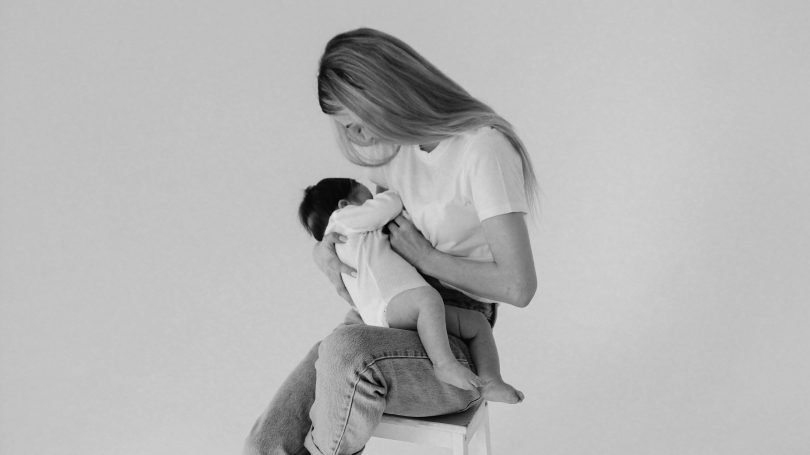
- Photo by
- Alina Matveycheva from Pexels
The baby blues are not a sign of weakness or an inability to handle motherhood—they are a physiological response to childbirth. Hormonal fluctuations, physical exhaustion, and the sudden life shift contribute to this temporary emotional turbulence.
The baby blues are triggered by a combination of hormonal shifts, sleep deprivation, emotional overload, physical recovery, and identity changes. After delivery, estrogen and progesterone levels drop sharply, disrupting neurotransmitters like serotonin and dopamine, which regulate mood, often leading to irritability, sadness, and anxiety. Sleep deprivation further intensifies these feelings, as frequent nighttime feedings and postpartum recovery disrupt normal rest patterns, leaving mothers physically and emotionally drained.
The demands of newborn care, especially for first-time mothers, can feel overwhelming, creating a whirlwind of emotions fueled by self-doubt and exhaustion. Additionally, postpartum physical recovery—whether from vaginal delivery or a C-section—can add discomfort, soreness, and limited mobility to an already intense period. Beyond the physical and emotional strain, many new mothers struggle with an identity shift, feeling disconnected from their pre-baby selves, careers, social lives, and hobbies, which can lead to isolation or loss.
If these symptoms persist beyond two weeks or intensify into ongoing sadness, extreme anxiety, or detachment from the baby, it may indicate postpartum depression (PPD), which requires professional support.
Practical Strategies for Overcoming Baby Blues
1. Prioritize Rest & Sleep
Lack of sleep is one of the biggest contributors to emotional instability postpartum. While it’s impossible to completely avoid sleepless nights, small adjustments can help:
- Sleep when the baby sleeps—even short naps can restore mental clarity.
- Share night feedings with a partner or caregiver if possible.
- Avoid screen time before bed to improve sleep quality.
2. Nourish Your Body for Emotional Stability
What you eat affects your mood. New mothers often neglect their own nutrition, but consuming the right foods can support emotional recovery.
- Omega-3 fatty acids (found in salmon, flaxseeds, walnuts) help regulate mood.
- Protein-rich foods (chicken, eggs, beans) stabilize blood sugar and prevent energy crashes.
- Hydration is key—dehydration can contribute to fatigue and mood swings.
3. Move Gently, Move Often
Exercise releases endorphins, natural mood boosters that help combat feelings of sadness and anxiety. Even light movement can make a difference:
- Short walks outside provide fresh air and a change of scenery.
- Postnatal yoga helps relieve tension and supports relaxation.
- Pelvic floor exercises (Kegels) aid physical recovery and improve body confidence.
4. Accept Help & Build Your Support System
Many new mothers feel pressure to “do it all.” Instead of struggling in silence, accepting help is a strength, not a weakness.
- Let loved ones assist with cooking, cleaning, or baby care.
- Join a new mom’s support group to connect with others who understand.
- Lean on trusted friends or family members when you need emotional reassurance.
5. Express Your Feelings Openly
Bottling up emotions intensifies stress. Talking about your experience can be incredibly freeing.
- Share your thoughts with a trusted friend, partner, or therapist.
- Keep a journal to track your emotions and notice patterns.
- If verbalizing is hard, try art, music, or creative outlets as emotional expression.
6. Reduce Unnecessary Stressors
Newborn life is unpredictable, so simplifying daily routines can prevent added stress.
- Say no to non-essential commitments.
- Set realistic expectations—your house doesn’t have to be spotless.
- Shop online for groceries and essentials to minimize errands.
7. Schedule “Me Time” Without Guilt
Mothers often prioritize their baby’s needs over their own, but self-care is essential for mental health. Even small moments of relaxation can recharge your emotional battery.
- Enjoy a warm bath while someone watches the baby.
- Read a book, listen to music, or practice meditation for 10 minutes a day.
- Step outside alone for a few deep breaths—nature has proven mood-enhancing effects.
Moving beyond the baby blues requires ongoing attention to postpartum emotional health. As you adjust to motherhood, prioritizing your mental well-being can lead to a more joyful and fulfilling experience. Staying connected with loved ones—whether in person or virtually—helps combat isolation and reduces stress. Be patient with yourself; adjusting to this new role takes time, and releasing unrealistic expectations will allow you to embrace imperfection.
If feelings of sadness persist, seeking professional support through therapy or support groups can provide invaluable guidance. Practicing gratitude by reflecting on small joys each day fosters emotional resilience. Most importantly, remember that you are not alone. The transition to motherhood is complex, but with the right tools and support, you will find your rhythm, regain confidence, and embrace this new chapter with strength.